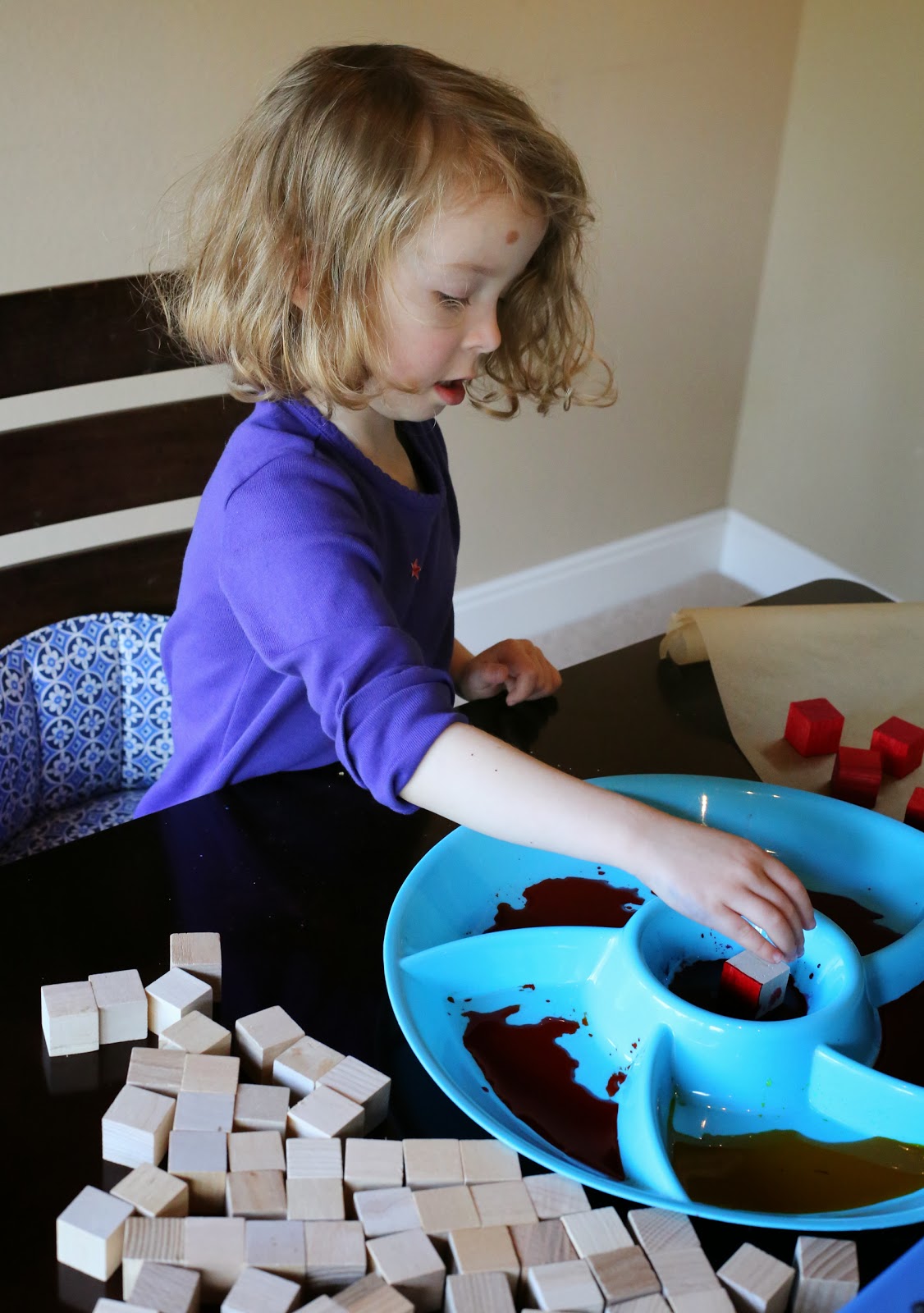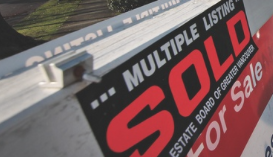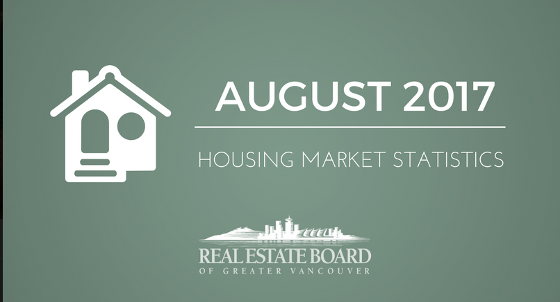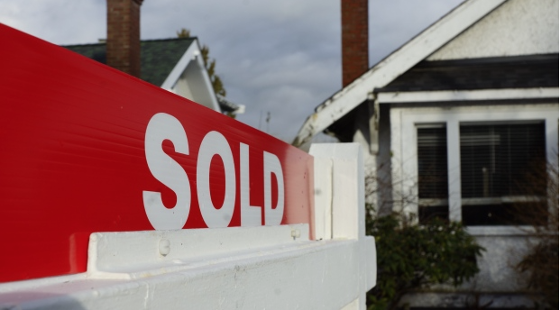Posted on
December 5, 2017
by
fabrizio zenone
Many Vancouver baby boomers using living inheritance to finance kids' home purchases

Survey finds over a third of Vancouver baby boomers are using a living inheritance to finance their kids' home purchases
VANCOUVER (NEWS 1130) – As real estate prices in Vancouver continue to soar, the children of baby boomers are turning to a familiar source to finance their first homes: mom and dad.
That’s according to a new survey by Mustel Group and Sotheby’s International Real Estate Canada.
“Many people are now dependant on either getting loans or, in the case of living inheritance gifts from their parents in order to be able to get into the market, even at modest levels,” says Sotheby’s President and CEO Brad Henderson.
The survey finds over a third of baby boomers in Vancouver are using a living inheritance to finance their kids’ home purchases.
Despite the high real estate prices, Henderson claims people still consider real estate to be a solid investment.
“People still feel that it is a good store of wealth, if not an investment. And many of the people that we surveyed found that it was going to be as good, if not better, than some… typical financial investments,” he says.
Nearly half of those who are getting receiving a living inheritance say they would not be able to buy real estate without that windfall.
Posted on
December 5, 2017
by
fabrizio zenone

Unless you're famous for doing something terrible, having your own Wikipedia page is probably a point of pride.
The question on Seth Stephens-Davidowitz's mind is: What does it take to actually attain that level of prominence?
Stephens-Davidowitz is a former Google data scientist and Harvard-trained economist. He's also the author of the book "Everybody Lies," which presents research on how internet searches can get at people's innermost thoughts.
Instead of calling people into a lab, Stephens-Davidowitz prefers to look at what the masses are confessing to Google at 8:36 p.m. on a Wednesday. This data can also be harnessed to learn a few things about what makes people successful.
To do that, Stephens-Davidowitz downloaded all of Wikipedia -- "You can do that sort of thing nowadays," he wrote -- and plucked more than 150,000 editor-approved entries about individuals to comprise his initial dataset. His metric for success was simply that the included individuals had their own Wikipedia page.
Here's what he found.
They grow up near big college towns.
Geography played an enormous role in producing a Wikipedia success story, according to Stephens-Davidowitz's research, in particular when there was a thriving college town nearby.
For example, the counties containing Madison, Wisconsin; Berkeley, California; Chapel Hill, North Carolina, and Ithaca, New York were all in the top 3% of page frequency. Those towns are home to the University of Madison, Wisconsin; University of California, Berkeley; UNC Chapel Hill; and Cornell.
When Stephens-Davidowitz sliced the data even further, he found college towns were especially good at producing famous musicians.
"A kid in a college town will be exposed to unique concerts, unusual radio stations, and even independent record stores," he wrote.
They grow up in counties with big cities.
If a county didn't have a college town, people were still more likely to find success if there was a big city nearby. It's more important to be near big ideas than big backyards, Stephens-Davidowitz wrote.
"Being born in San Francisco County, Los Angeles County, or New York City all offered among the highest probabilities of making it to Wikipedia," he wrote, reasoning that "urban areas tend to be well supplied with models of success."
New York City was most likely to produce notable journalists, Boston produced the most scientists, and Los Angeles produced the most actors -- all relying solely on who was born there, not who moved there.
"And this holds true even after subtracting people with notable parents in that field," Stephens-Davidowitz wrote.
Their hometowns are culturally diverse.
Tracking with the finding that famous people grew up near novel ideas, Stephens-Davidowitz found counties with higher proportions of immigrants produced more notable people than homogeneous ones.
His data showed it's even better if the parents themselves are immigrants: At least 13 of the 100 most famous white baby boomers were children of immigrants, according to MIT's Pantheon Project, which also used Wikipedia data. That's more than three times higher than the national average during the period, Stephens-Davidowitz noted.
"If two places have similar urban and college populations," he wrote, "the one with more immigrants wil produce more prominent Americans."
Sometimes, they specialize.
When it doubt, Stephens-Davidowitz wrote, go narrow.
Roseau County, Minnesota doesn't have the urban population, diversity, or big college presence that many other notable counties do. But it does make Stephens-Davidowitz's list for a simple reason: It produces star hockey players.
Roughly one in 740 people from Roseau County made it into Wikipedia -- nine in total, all of them professional hockey players, "no doubt helped by the county's world-class youth and high school hockey programs."
Bonus: It doesn't matter how much states spend on education.
One thing he found that didn't correlate to achieving fame was the degree to which a county invested in local education.
"Spending a lot on education helps kids reach the upper middle class," Stephens-Davidowitz wrote. "It does little to help them become a notable writer, artist, or business leader. Many of these huge successes hated school. Some dropped out."
In other words, education does affect how much people attain over their lives. But it won't necessarily lead to runaway success. Research has shown the average millionaire had a high-school GPA of just 2.9.
Posted on
November 30, 2017
by
fabrizio zenone
Though we don't follow any specific educational philosophy over here, I do love the simplicity and beauty of Waldorf toys - specifically the Grimm Rainbow Blocks . They are just sooooo beautiful. I have coveted them for a long time now, and though I am sure they are incredibly high quality wooden blocks, I just can't bring myself to spend that much money. So I decided to see if I could come up with a DIY version of the rainbow wooden blocks. I am so thrilled with how well they turned out - and our homemade version was just a fraction of the cost - even better. Though I'm sure ours are not quite heirloom quality, they are super vibrant, bright, and fun to build with - so we're very pleased with them. They would make a fabulous homemade gift as well!
And they are so fun to build with. I can't get over the gorgeous rainbow colors!
To make them is super easy! You could use liquid watercolors to color wood when you see Teaching 2 and 3 Year Old's Rainbow Craft Stick Mobiles. You figure if they could make gorgeous craft sticks, they could probably dye wooden blocks. And they totally can! I You buy several bags of various sized Unfinished Wood Blocks at local craft store (Michaels) and put a small amount of each different color of liquid watercolors in a tray. Dip each side of the block in the liquid watercolors for 2 seconds, then flipped, and when the entire block is coated, lay them on some wax paper to dry.

To be on the safe side, let blocks dry for a full 24 hours before using them for building. Use a combination of different brands of liquid watercolors, as well as dilute a few colors to get a wide variety of hues of each color. If you do not have liquid watercolors, I suspect some well mixed dilute food coloring would also work (though you may want to wear gloves while dying them). And just a reminder that the dye is not set - so these are not blocks that should be around babies/toddlers who are still mouthing (as the dye may come off in their mouths).
Posted on
November 30, 2017
by
fabrizio zenone
There's nothing quite like the sweet scent of a real Christmas tree during the holiday season.
They require more care than artificial trees — from constant watering to disposal — but they add an undeniable festive touch.
Here are some options so you can head home with a tall Fir or petite Pine this holiday season.
Pre-cut Trees
Local tree lots are likely your best bet for pre-cut trees.
A number of local charitable groups open tree lots every year so you can buy a tree while helping others.
Vancouver South Lions Club - the lot is run by volunteers and proceeds go back to projects supported by the Lions club including projects for kids and seniors. They're located outside John Oliver Secondary at the corner of Fraser Street and E. 41st Avenue. Credit cards are accepted.
TREK Trees - Students, their parents and teachers from Prince of Wales secondary's TREK outdoor education program rally every year to open this lot. They say they're Vancouver's largest with 2000 trees available. Prices range from $20 to $60 and they will even make free deliveries to seniors. You can find the lot at Prince of Wales 2250 Eddington Drive.
Aunt Leah's Tree Lots - If you live outside of Vancouver, then Aunt Leah's might have the tree for you. Proceeds from purchases will support the charity's work with foster kids, teen mothers and provide retail training experience for youth right at the lot. Prices start at $15 for a tree.
- Burnaby - All Saints Anglican Church, Royal Oak and Rumble.
- Coquitlam - Eagle Ridge United Church, 2813 Glen Drive.
- North Vancouver - Lonsdale Quay, East Plaza 123 Carrie Cates Court.
- Vancouver - St. Stephen's United Church, W. 54th and Granville Street.
Scouts Christmas Tree Lot - The North Shore Scouts host an annual tree lot to raise funds supporting a number of groups in the area. You can find them at Park Royal at the corner of Taylor Way and Clyde Avenue.
Potted Trees
For those in smaller homes or want a live tree, potted options might be more desirable.
Keep in mind if you plan on re-planting the trees outside after you've had it in your home, it can only remain indoors for up to two weeks.
Garden Centres - stores like Figaro's Garden in East Vancouver and Art's Nursery in Surrey have stocked up on a selection of potted trees that you can nurture year-round after the decorations come down.
Grocery stores - grocery chains across the Lower Mainland like Whole Foods and Save-on-Foods are carrying Christmas trees in pots. Some also offer pre-cut options. Prices range from $25 to $50.
U-Cut Trees
If you want to head out and cut your own tree, the B.C. Christmas Tree Council has compiled a list of farms across the province you can visit with your family. Some farms let your borrow their saws and help with baling.
Farms like Langley's Frosty's Family Christmas Tree Farm and Richmond's H&M Christmas Tree Farm even serve up hot cider and carols for a fully festive outing.
Posted on
November 30, 2017
by
Fabrizio Zenone

The British Columbia Real Estate Association is out with its fourth-quarter housing forecast, and it’s predicting residential sales will decline by 10 per cent in 2018, after an expected drop of 8.8 per cent in 2017.
Association Chief Economist Cameron Muir says while demand is expected to be strong in the coming year, there are several factors he expects will temper that, including a rising interest rate environment and more stringent mortgage stress tests.
He says the supply of homes for sale is now trending at or near decade lows in most B.C. regions, resulting in higher prices.
But he thinks the combination of weakening consumer demand and a surge in new home completions next year will induce more balanced market conditions, producing less upward pressure on home prices.
But, the average residential price in the province is forecast to increase 3.1 per cent this year, and a further 4.6 per cent next year, to $745,300.
Posted on
November 21, 2017
by
fabrizio zenone

The B.C. government wants to close a loophole that allows landlords to bypass annual rent controls by flipping tenants and imposing larger rent hikes between leases.
Housing Minister Selina Robinson introduced changes to the Residential Tenancy Act in the legislature Thursday that she said would protect renters who have been vulnerable to higher rent increases and housing instability.
She said the act has allowed landlords to impose a vacate clause on leases, forcing renters out of their homes and allowing landlords to exceed rent controls for the next tenant.
“This is unacceptable, and the undue stress and anxiety this caused renters has gone on for far too long,” Robinson said.
There are about 1.5 million renters in the province and in Vancouver, vacancy rates hover near zero per cent.
Robinson said the challenges facing renters is not exclusive to Metro Vancouver and is being felt across the province.
Changes to the law would restrict the use of the vacate clause and protect tenants renewing fixed-term agreements so they are covered by rent control, which currently allows increases of two per cent plus inflation. The changes would apply to existing rental agreements, Robinson said.
“This will give renters the security they deserve and help bring integrity to the rental industry, which is good for landlords,” she said.
David Hutniak, chief executive officer for LandlordBC, said his organization has condemned the abuse of vacate clauses and fixed-term agreements.
The proposed changes would prevent bad landlords from taking advantage of renters, he said.
“Landlords who are abusing this form of tenancy are damaging our industry and really their behaviour is unfair to responsible and professional landlords,” he said.
Andrew Sakamoto, executive director of the Tenant Resource and Advisory Centre, said it receives about 8,000 calls from tenants annually and has noticed a spike in complaints about fixed-term tenancies and vacate clauses in recent years.
“Today represents a huge step forward, towards better balancing the rights and responsibilities of tenants and landlords,” he said. “Prohibiting the vast majority of vacate clauses and doing so retrospectively will go a long way toward improving housing affordability across the province.”
Robinson said the law would also streamline the dispute resolution process for the return of security and pet deposits, and ensure tenants would no longer have to wait months to get their money back.
As well, a funding increase for the Residential Tenancy Branch previously announced by the government will increase its ability to enforce laws and go after repeat offenders, Robinson said.
Whether that funding increase has improved wait times for tenants filing complaints is still unclear but Robinson said the government is monitoring the situation.
Posted on
November 21, 2017
by
fabrizio zenone
The City of Vancouver has begun rolling out empty homes declarations, asking homeowners to divulge whether their property in Vancouver is their primary residence, in preparation to start collecting the new empty homes tax.
The forms are arriving by email and snail mail and ask homeowners to say whether their home is their primary residence, a secondary residence or rented out to tenants. Homeowners need to declare by Feb. 2, 2018 or risk automatically being charged a higher tax rate.
"This empty home tax initiative is all about creating more long-term rental housing and addressing the rental crisis that we have across the city," Mayor Gregor Robertson said at a press conference Tuesday.
The city estimates there may be as many as 25,000 empty or under-occupied homes in Vancouver. Robertson said the tax is an incentive for people with investment properties to put those homes on the rental market.
The new tax is one per cent of the property's assessed value. That's $10,000 on a million dollar home. The city says the declarations will be audited to ensure owners are telling the truth.
While the tax comes after calls to address the housing affordability crisis in the city, some homeowners are calling the new levy unfair and are even taking the city to court over it.
Bruce Kaufman, a California resident, is part of a group called Unfair Vancouver Tax [LINK] that's pursuing legal action with the city
"We all have reasons to be here," he said. "I don't mind paying more taxes but I do mind paying an unfair tax."
He says the city has an unreasonable definition of what they consider an empty or unoccupied home. Kaufman has been coming to Vancouver for the past 17 years—he usually stays from April-October.
"We came up for vacation… and we just seemed to love it," he said. "So we went out and said we're going to buy a place for our retirement."
He says several of his Coal Harbour neighbours have legitimate reasons for holding a second residence in the city—from grandparents caring for grandchildren to a patient undergoing chemotherapy to a doctor who frequently gets called into the city.
Kaufman says he'll declare his home vacant on the form, but it may soon be for sale.
"After 17 years… we have given serious consideration to leaving Vancouver," he said
Posted on
November 16, 2017
by
fabrizio zenone
Against objections from the industry, B.C.'s real estate watchdog will prohibit the controversial practice of "dual agency," where realtors represent both the seller and buyer on a transaction.

Over objections from the industry, B.C.’s real estate regulator will prohibit the controversial practice of dual agency — where a single realtor represents both the seller and buyer in a transaction — saying the ban will improve transparency and protect consumers.
The dual agency ban announced Wednesday is part of the first major rules to be introduced by B.C.’s Office of the Superintendent of Real Estate since the provincial government ended self-regulation of the real estate industry last year and transferred rule-making powers from the Real Estate Council of B.C. to the office of the government-appointed superintendent.
Last year’s regulatory changes, which included the appointment of a new superintendent of real estate with expanded oversight powers, were made after media scrutiny and widespread public concern over the Real Estate Council’s oversight of misconduct in the province’s red-hot housing market. B.C. adopted changes to the Real Estate Services Act, which the government said were intended “to increase oversight of the real estate industry and enhance consumer protection.”
Micheal Noseworthy, appointed in September, 2016, as B.C.’s superintendent of real estate, said in a media release Wednesday: “These rules will significantly change the way that real estate services are provided in British Columbia. … Ending dual agency removes the potential for conflict and serious problems. We want to create transparency for both consumers and licensees to ensure everyone understands in whose interest licensees must be working.”
In a September meeting with The Vancouver Sun and Province editorial board, Noseworthy said that after he took the position last year, “right away, I identified as the top priority figuring out what to do about so-called dual agency.”
“Dual agency, the way it’s allowed to be practised now, can lead to conflicts for consumers,” Noseworthy said then. “It’s a situation, a practice that’s unfortunately open to abuse, and I think it’s better for consumers if we close it, so there’s no opportunity for it to be abused.”
After his office released the proposed rule changes in September, the B.C. Real Estate Association, representing 22,000 real estate agents, opposed ending dual agency, with association CEO Robert Laing telling Postmedia: “Our biggest concern is the consumer’s right to make a choice about who they work with is being taken away from them. … The superintendent is trying to protect the consumers, but we think he is forgetting that, in a free-enterprise market, the consumer needs choice.”
Along with the dual agency ban announced Wednesday, other new rules are coming into effect next year enhance disclosure requirements for information that must be provided to clients about remuneration obtained by brokers and agents through commissions.
Ontario has also recently proposed banning dual agency, the Toronto Star reported in June, after government officials said consumers had raised concerns that financial incentives in double-ended deals could lead agents to engage in “unethical behaviour.”
Realtors can apply for an exception to the dual agency ban if a transaction occurs in a remote or underserved area of B.C. with limited access to licensed realtors.
Posted on
November 3, 2017
by
Fabrizio Zenone
Metro Vancouver* home sales exceeded typical historical levels in October with the majority concentrated in the townhouse and apartment markets.

The Real Estate Board of Greater Vancouver (REBGV) reports that residential property sales in the region totalled 3,022 in October 2017, a 35.3 per cent increase from the 2,233 sales recorded in October 2016, and an increase of 7.1 per cent compared to September 2017 when 2,821 homes sold.
Last month’s sales were 15 per cent above the 10-year October sales average.
"Conditions continue to vary significantly based on property type. The detached home market is well supplied with homes for sale, which is relieving pressure on prices," Jill Oudil, REBGV president said. "It remains a much different story in the townhouse and apartment markets. Buyers of these properties continue to have limited supply to choose from and are seeing upward pressure on prices."
There were 4,539 detached, attached and apartment properties newly listed for sale on the Multiple Listing Service® (MLS®) in Metro Vancouver in October 2017. This represents a 14 per cent increase compared to the 3,981 homes listed in October 2016 and a 15.6 per cent decrease compared to September 2017 when 5,375 homes were listed.
The total number of properties currently listed for sale on the MLS® system in Metro Vancouver is 9,137, a 0.1 per cent decrease compared to October 2016 (9,143) and a 3.5 per cent decrease compared to September 2017 (9,466).
For all property types, the sales-to-active listings ratio for October 2017 is 33.1 per cent. By property type, the ratio is 16.8 per cent for detached homes, 44.8 per cent for townhomes, and 66 per cent for condominiums.
Generally, analysts say that downward pressure on home prices occurs when the ratio dips below the 12 per cent mark for a sustained period, while home prices often experience upward pressure when it surpasses 20 per cent over several months.
"The growth in our provincial economy and job market is contributing to today's demand," Oudil said. "The federal government's announcement of plans to tighten mortgage requirements for the seventh time in the last eight years also helped spur activity in the short term. Many buyers are trying to enter the market before the changes are in place."
The MLS® Home Price Index composite benchmark price for all residential properties in Metro Vancouver is currently $1,042,300. This represents a 12.4 per cent increase over October 2016 and a 0.5 per cent increase compared to September 2017.
Sales of detached properties in October 2017 reached 940, a 44.2 per cent increase from the 652 detached sales recorded in October 2016 and a 34.6 per cent decrease from the 1,437 sales in October 2015. The benchmark price for detached properties is $1,609,600. This represents a four per cent increase from October 2016 and a 0.5 per cent decrease compared to September 2017.
Sales of apartment properties reached 1,532 in October 2017, a 30.1 per cent increase compared to the 1,178 sales in October 2016 and a 0.7 per cent decrease from the 1,543 sales in October 2015. The benchmark price of an apartment property is $642,000. This represents a 22.7 per cent increase from October 2016 and a one per cent increase compared to September 2017.
Attached property sales in October 2017 totalled 550, a 36.5 per cent increase compared to the 403 sales in October 2016 and a 17.4 per cent decrease from the 666 sales in October 2015. The benchmark price of an attached unit is $802,400. This represents a 17.7 per cent increase from October 2016 and a two per cent increase compared to September 2017.
Posted on
November 2, 2017
by
Fabrizio Zenone
The Internet has equipped us with more information, tutorials and access than we’ve ever had before.
And that’s great. We’ve got the world at our fingertips.
But it also means that plenty of home buyers and sellers are increasingly convinced that they can tackle real
estate on their own; no real estate agent needed.
Wrong! (But you knew that already, right?)
All the wisdom of the Internet can’t replace the experience, know-how and strategy that a good real estate agent delivers.
 That’s why, according to recent stats from Zillow, some 74 per That’s why, according to recent stats from Zillow, some 74 per
cent of buyers across all generations and demographics still choose to work with a REALTOR® when buying a home.
Next time a potential buyer is wondering whether they could benefit from your services, you can bring up these five
reasons why buyers still need real estate agents.
1. REALTORS® Have Powerful Negotiation Skills
Real estate agents are much better equipped to handle difficult negotiations and emotionally charged transactions.
Negotiating is a significant part of a REALTOR®’s job description; good agents know how to best represent their client’s
interests, and the strategies that will get the best results.
Without that experience and know-how, and with the emotional investment that comes with house hunting, a buyer isn’t
positioned for a successful negotiation.
That’s why 82 per cent of buyers report negotiation skills as a key benefit of working with an agent.
2. REALTORS® Have Intimate Knowledge Of Local Markets
Seventy-nine per cent of buyers say a REALTOR®’s local market knowledge plays a large role in whether or not they
hire that particular agent. Those buyers are smart; a real estate agent’s knowledge 
can mean the difference between buying a home for list price or under asking, and the likelihood of getting the best possible
closing conditions.
Buyers can research endlessly, but their newly acquired knowledge still won’t match what a real estate agent knows about
market history, statistics and how the industry works.
Not many average Joes can talk on and on about average days spent on the market, average price per square metre, and
how both those factors will impact the house they buy.
3. REALTORS® Have Inside Access And Information
Buyers representing themselves don’t get the same kind of access that professional real estate agents do.
Those credentials actually do stand for a lot in this industry. Agents will be allowed entry to exclusive open houses
, for example, that the general public are barred from.
And don’t forget about a REALTOR®’s familiarity with processes — making an offer, closing, all the legal details.
That expertise only comes with inside experience.
4. REALTORS® See Things That The General Public Doesn’t
Touring a home with an experienced REALTOR® is much different than walking through as an unaccompanied buyer.
AREALTOR® will point out features and potential red flags that an untrained eye won’t see. And those details could mean
the difference between buying a blue-ribbon home or a stinker. Luckily, some 82 percent of buyers value this particular
aspect of working with a REALTOR®.
A real estate agent can also read between the lines of listing descriptions and contracts, catching potential landmines that
would go unnoticed by someone outside of the industry.
5. REALTORS® Protect Buyers…
… From mountains of paperwork, heated discussions, awkward questions, and negotiations of seemingly minute details.
Real estate agents are both the expert and the buffer in the home-buying process, sparing clients from the stress and the
work involved.
Most people pay someone else to cut their hair, because they trust their skills and they want to be happy with the end result.
Why wouldn’t you choose to trust a professional when it comes to a monetary (and emotional) investment as huge as buying
a home?
Posted on
November 2, 2017
by
Fabrizio Zenone
B.C. Finance Minister Carole James delivers the budget from the legislative assembly at Legislature in Victoria, B.C., on Monday, September 11, 2017.
Three-and-a-half months into its mandate and B.C.’s NDP government still hasn’t enacted key promises from its election platform to tackle housing affordability.
But the party’s finance minister denies the New Democrats are being timid on the housing file.
Carole James joined CKNW’s Jon McComb Wednesday morning with an update on what the party has done, and a timeline for what it hasn’t.
With the latest data showing foreign buyer activity picking up again in Metro Vancouver, and condo prices surging, the BC NDP now finds itself in the hot seat once occupied by its rivals, the BC Liberals.
James said she’s fully aware that this is a top public priority, and said her government has already taken action to the tune of $500 million in the form of new modular housing, funding for 1,700 units of purpose built rental, and new money for the Residential Tenancy Branch — all announced in September’s mini-budget.
None of those measures, however, are targeted at cooling the province’s white-hot real estate market or involve much in the way of major policy change.
In its election platform, the NDP promised to implement a two per cent absentee speculators tax, create a new agency to catch tax cheats and money launderers, and create a housing affordability fund.
Those actions, James told McComb, are coming.
“Less than 100 days and we’ve taken more action than the previous government did in 16 years. Is there more to do? You bet,” she said.
“Other pieces are coming. When it comes to money laundering, when it comes to actual challenges, actual loopholes, those are pieces we’re working on now.”
Any changes to tax policy can’t be unveiled until the February budget, James said.
Between now and then, James said the province is studying a full suite of tax changes, consulting with industry stakeholders like Airbnb and exchanging information with the federal government.
The goal, said James, is a policy that is both comprehensive and long term, and one which addresses both supply and demand issues. But she said getting it right will take time.
“It was pretty clear if you look at the foreign buyers’ tax that we’re continuing to see an uptake,” James said.
“It’s leveling out, but we’re continuing to see an uptake in foreign buyers. Many people believe that’s really the challenge when it comes to housing prices.
“Other people believe a speculation tax would be a better option. Other people believe that we have to look at Airbnb.”
James added that the province is talking with the Canada Revenue Agency about creating a registry for pre-sale condos to prevent speculators from flipping units and driving up prices.
Posted on
October 18, 2017
by
Fabrizio Zenone
Previously only those with less than 20% down were tested, but now all borrowers will be

Canada's top banking regulator has published the final version of its new mortgage rules, which include a requirement to "stress test" borrowers with uninsured loans to ensure they could withstand higher interest rates.
The Office of the Superintendent of Financial Institutions (OSFI) released new guidelines for the mortgage industry on Tuesday. The regulator floated a similar version of these rules earlier this summer in draft form, but Tuesday's release makes them official as of Jan. 1.
Among the major new rules is a requirement to stress test uninsured borrowers. Previously, only insured borrowers had to undergo such a test.
By law, borrowers with a down payment of under 20 per cent for a home must purchase mortgage insurance. Borrowers pay an insurance premium, but the beneficiary is actually the lender, because the insurance protects the loan giver in the event the borrower defaults on the loan.
And the insurance premiums can easily be into the thousands of dollars, on top of the cost of a home, ranging from 0.6 to 4.5 per cent of the mortgage, depending on the size of the down payment and the price of the property.
The Canada Mortgage and Housing Corporation is far and away the biggest mortgage insurer in Canada, although it competes with private rivals Genworth Financial, Canada Guaranty and a few others.
On a $500,000 home with a $50,000 down payment, the CMHC says a borrower would be charged an extra $13,950 to insure the $450,000 mortgage.
The vast majority of first-time borrowers have to purchase mortgage insurance, and they have been obligated to undergo a stress test of their finances since last year.
Anyone who puts down more than 20 per cent of the value of a home doesn't have to pay such insurance, and is known as an "uninsured" borrower — the people affected by the new rules revealed Tuesday.
The stress test itself consists of ensuring the borrower would be able to pay the loan if interest rates become higher than they are today.
According to the Bank of Canada, the big banks currently have an average five-year posted mortgage rate of 4.89 per cent. But it's not difficult to find a lower rate by shopping around. (Rate comparison website ratesupermarket.ca calculates that many lenders are offering five-year mortgages below three per cent, as does rival RateSpy.com and many others.)
The stress test is designed to simulate a borrower's financial situation by assuming they would have to pay back the loan at the posted average — not whatever deal they were able to negotiate. So under OSFI's new rules, borrowers would be stress tested at either the five-year average posted rate, or two per cent higher than their actual mortgage rate — whichever one is higher.
Notably, the new stress test rules won't apply to mortgage renewals as long as they are with the borrower's existing lender.
The regulator published a draft of its new rules over the summer, before consulting with stakeholders about any changes that need to be made. The regulator said it received more than 200 submissions from people in the industry and members of the public about the rules as they were proposed in July.
The idea's critics, including many in the real estate industry, said imposing a stress test on all buyers would put a chill on the housing market at a time that it can ill afford it.
But OSFI is pressing ahead anyway with changes it describes as "vigilant."
"These revisions reinforce a strong and prudent regulatory regime for residential mortgage underwriting in Canada," said Jeremy Rudin, OSFI's superintendent.
TD Bank economist Brian DePratto agrees with that assessment, noting "on balance, these changes should help enhance the resilience of the Canadian banking system in a rising interest rate environment."
But that's not to suggest there won't be pain to be had because of them. DePratto estimates that expanding the stress test to all buyers will depress demand for housing by about five or 10 per cent, and there may be a mini-rush to get in before the new rules come in in January.
He believes the housing market's reaction to the last stress test rules in 2016 are a good example of why the regulator felt compelled to act again: As of August, insured mortgages were down 4.5 per cent in the 12 months since they were subject to a stress test.
Uninsured mortgages, meanwhile, grew 17.3 per cent — which suggests homeowners were doing anything they could to get their down payments above the 20 per cent threshold, and away from being locked out of an insured mortgage from failing a stress test.
"Estimates peg the uninsured market at roughly 80 per cent of activity recently, so this measure will bite, arguably more than past changes in the priciest markets," Bank of Montreal economist Doug Porter said.
In practical terms, the stress test would mean that a potential buyer of a $1 million home with 20 per cent down would see their purchasing power knocked down by about 15 per cent, he estimated.
"These changes in mortgage rules represent a further tightening of the screws for the housing market."
Mortgage broker Kim Gibbons with Mortgage Intelligence said she thinks the new rules are a little too strict.
"In the mortgage world, a lot of people are talking about how it's too stringent and the government is tightening up far too much, considering what the delinquencies are in this country for mortgages," she said in an interview.
"And I know that they want to cool the market, but this might put a halt on it."
"I think it's going to be a busy November and December. And I think after that, it's going to cool the market a bit," she said.
Other changes too
In addition to the stress test, the new rules would require lenders to have more scrutiny around the loan-to-value ratio of the loans they give out, to ensure they are not giving out mortgages that are too large compared to the underlying value of the home.
There's also new limitations on so-called co-lending or bundled mortgages that aim to ensure lenders don't flout rules designed to limit how much they can lend.
Posted on
October 18, 2017
by
Fabrizio Zenone
I have always enjoyed challenging widely held beliefs, probably because so many of them fall apart upon closer examination. Most recently, my contrarian radar started going off in the summer as talk of a Canadian housing bubble increased from a simmer to a boil. One of the most common justifications used in the argument that our house prices are due for aprecipitous fall is that rock bottom interest rates have nowhere to go but up. When rates increase, the argument goes, affordability decreases and prices have to fall or buyers will be priced out of the market. Fair enough. It’s true that when interest rates increase, the cost of borrowing becomes more expensive, and it’s reasonable to assume that our historically low interest rates are more likely to increase than decrease over time. Bubble talkers regularly cite both factors when making their case, and after much repetition, consumers accept the conclusions that are drawn from these assumptions as valid. Far be it for me to let real data get in the way of a good round of group think, but alas, I do enjoy tipping over the apple cart, so here goes.
Over the past thirty years, increases in Canadian mortgage rates have not tended to trigger a decrease in houses prices. In fact, more often than not the reverse is true. Before I get into the numbers, let me start by citing my sources. I took the average five-year residential mortgage lending rate (from Statistics Canada) and compared it to the average selling price of a Canadian home (provided in a report by the Canadian Real Estate Association), on a month-by-month basis from January, 1980, up to June, 2010. I used the five-year fixed-mortgage rate because it is by far the most common term chosen by Canadians, and I went back to 1980 because that was as far back as the CREA stats went. The only tweak I made to the data was to compare interest rate changes to house prices two months hence, because I reasoned that higher rates would immediately impact offers to purchase, which take about two months to become transactions. Here is what I found:
Over this period, totaling 365 months, there were 156 instances where the five-year residential mortgage rate increased over the prior month, and in 97 of these cases, house prices increased two months later. That means that  62% of the time, increasing mortgage rates corresponded with higher pricing. I also wondered what happened to average prices when rates rose precipitously, so I looked at cases where month-over-month rate increases were greater than 5% (this happened in only 22 of the 365 months observed). To my surprise, in 13 of those 22 months there was still an increase in average house prices two months hence. So, even in cases where rates rose dramatically, the odds were still better than 50% that they coincided with rising house prices. While I will concede that this ‘back-of-the-envelope’ analysis is a tad simplistic, I think a trend established using thirty years of data is compelling. 62% of the time, increasing mortgage rates corresponded with higher pricing. I also wondered what happened to average prices when rates rose precipitously, so I looked at cases where month-over-month rate increases were greater than 5% (this happened in only 22 of the 365 months observed). To my surprise, in 13 of those 22 months there was still an increase in average house prices two months hence. So, even in cases where rates rose dramatically, the odds were still better than 50% that they coincided with rising house prices. While I will concede that this ‘back-of-the-envelope’ analysis is a tad simplistic, I think a trend established using thirty years of data is compelling.
So how do we explain this counter-intuitive result? Well for starters, interest rates and house prices do not exist in a vacuum and both are influenced by the overall strength or weakness of our broader economy. Rising interest rates generally occur in a healthy economic environment where future price inflation is expected, making them a by-product of positive economic momentum. While it certainly is true that higher rates increase borrowing costs, this generally happens in periods with rising incomes, higher levels of employment and increasing consumer confidence. To take our contrarian thinking to its logical conclusion, we should all be rooting for higher interest rates. Seriously. Rock bottom rates are sustained when concern over inflation is replaced by fears of disinflation and outright deflation. Higher rates, on the other hand, are a sign of increasing confidence in our future economic prospects.
One last point. While I think the bubblers have misread the short-term relationship between rising interest rates and house prices, I am not altogether bullish about the immediate direction of house prices. We have seen substantial price appreciation in the last few years, and despite o ur recent positive economic momentum, we are far from out of the woods. Our average income levels, arguably the most important predictors of the future of house prices, have not kept pace with the rising cost of real estate and the two measures must trend in the same direction over the long-term (with either prices falling or incomes rising to restore their equilibrium at some point). For that reason, I think house prices may well soften over the short-term, but not to a bubble-bursting degree. While the debate rages on, I hope that my analysis of the immediate relationship between rate increases and house prices gives you a different perspective when deciding which camp you’re in. ur recent positive economic momentum, we are far from out of the woods. Our average income levels, arguably the most important predictors of the future of house prices, have not kept pace with the rising cost of real estate and the two measures must trend in the same direction over the long-term (with either prices falling or incomes rising to restore their equilibrium at some point). For that reason, I think house prices may well soften over the short-term, but not to a bubble-bursting degree. While the debate rages on, I hope that my analysis of the immediate relationship between rate increases and house prices gives you a different perspective when deciding which camp you’re in.
Posted on
October 11, 2017
by
Fabrizio Zenone
A North Vancouver, B.C. developer is offering a rent-to-own program for multimillion-dollar homes as a way to help would-be buyers get in to Canada's most expensive real estate market.
Ray Vesely, CEO of Apex Western Homes, allows those interested to lock into a five-year lease with five per cent down. He explains the deal as similar to a traditional home purchase, but with five years to "close."
A portion of the buyer's rent each month goes toward their future purchase, Vesely said. The buyer has the option to purchase the home between one and five years at the rate locked in on the date the agreement is made. If its value increases, the buyer keeps the market gains.
Rent is higher than a traditional lease, but the money goes to building up a down payment to secure a mortgage in the future. When the renter decides to exercise the "buy" option, they apply for a mortgage and use the equity already built up in the home.
He came up with the idea following his own experience after a divorce, but was also inspired by his staff members' struggles.
"I try to come up with creative ways to help them get a place… I've been thinking about this program for a while," Vesely said Thursday.
The rent-to-own option is meant to help those who want to buy their own place, but are unable to come up with a down payment.
The minimum down payment in Canada is five per cent of the first $500,000, but those buying a home for $1 million or more are required to have 20 per cent. In a market where the benchmark detached home price was $1,617,300 last month, down payments can easily exceed $200,000.
Vesely showed CTV News one of the homes that could be rented to own: a 3,800-sq.-ft. house on MacKay Avenue with four bedrooms, three bathrooms and a legal two-bedroom basement suite. The home was appraised at $2.3 million.
The monthly rent for the MacKay Avenue home is listed at $10,000 online, but those on a rent-to-own contract would be able to live in the basement and rent out the house or vice versa to help with the payments, Vesely said.
Buyers also defer paying GST and property transfer taxes until they exercise the "buy" option.
And the company is marketing the rent-to-own option to foreign buyers as a way to avoid the 15 per cent transfer tax imposed on all foreign nationals or corporations purchasing property in Metro Vancouver.
However, Vesely says the offer is only available to those who are approved for permanent residency status before buying.
B.C.'s finance minister says rent-to-own leases are legal, but that the ministry will be taking a closer look at the tax policy.
"We're very serious about ending tax loopholes and finding those tax loopholes, so I'm very concerned and we'll be investigating," Carole James told CTV.
Vesely said he's already spoken with the ministry and was told what he's offering is permitted.
"Really it's targeting guys like the tech community that are trying to come in. They actually have well-paying jobs, it's just hard to save up for the down payment," he said.
He added that while his program is generating interest, no one has taken him up on his offer so far.
Currently the program is only offered on homes in North Vancouver, but he said he's thinking of expanding into the condo market.
Posted on
October 4, 2017
by
Fabrizio Zenone
October 03, 2017
Home buyer demand continues to differ based on housing type
Apartment and townhome activity is outpacing the detached home market across Metro Vancouver*. This activity helped push total residential sales above the historical average in September.
The Real Estate Board of Greater Vancouver (REBGV) reports that residential property sales in the region totalled 2,821 in September 2017, a 25.2 per cent increase from the 2,253 sales recorded in September 2016, and a 7.3 per cent decrease compared to August 2017 when 3,043 homes sold.
Last month’s sales were 13.1 per cent above the 10-year September sales average.
“Our detached homes market is balanced today, while apartment and townhome sales remain in sellers' market territory,” Jill Oudil, REBGV president said. “If you’re looking to enter the market, as either a buyer or seller, it’s important to understand these trends and use this information to set realistic expectations.”
There were 5,375 detached, attached and apartment properties newly listed for sale on the Multiple Listing Service® (MLS®) in Metro Vancouver in September 2017. This represents a 12 per cent increase compared to the 4,799 homes listed in September 2016 and a 26.6 per cent increase compared to August 2017 when 4,245 homes were listed.
The total number of homes currently listed for sale on the MLS® system in Metro Vancouver is 9,466, a 1.2 per cent increase compared to September 2016 (9,354) and a 7.5 per cent increase compared to August 2017 (8,807).
“Detached homes made up 30 per cent of all sales in September and represented 62 per cent of all the homes listed for sale on the MLS®,” said Oudil. “This dynamic has slowed the pace of upward pressure that we’ve seen on detached home prices in our market over the last few years.”
For all property types, the sales-to-active listings ratio for September 2017 is 29.8 per cent. By property type, the ratio is 14.6 per cent for detached homes, 42.3 per cent for townhomes, and 60.4 per cent for apartments.
Generally, analysts say that downward pressure on home prices occurs when the ratio dips below the 12 per cent mark for a sustained period, while home prices often experience upward pressure when it surpasses 20 per cent over several months.
The MLS® Home Price Index composite benchmark price for all residential properties in Metro Vancouver is currently $1,037,300. This represents a 10.9 per cent increase over September 2016 and a 0.7 per cent increase compared to August 2017.
Sales of detached properties in September 2017 reached 852, a 27.9 per cent increase from the sales recorded in September 2016 (666), a decrease of 33 per cent from September 2015 (1,272), and a decrease of 32.9 per cent from September 2014 (1,270). The benchmark price for detached properties is $1,617,300. This represents a 2.9 per cent increase from September 2016 and a 0.1 per cent increase compared to August 2017.
Sales of apartment properties reached 1,451 in September 2017, a 19.1 per cent increase compared from the sales recorded in September 2016 (1,218), a 5.1 per cent decrease from September 2015 (1,529), and a 22.1 per cent increase from September 2014 (1,188). The benchmark price of an apartment property is $635,800. This represents a 21.7 per cent increase from September 2016 and a 1.4 per cent increase compared to August 2017.
Attached property sales in September 2017 totalled 518, a 40.4 per cent increase compared to the sales recorded in September 2016 (369), a 4.8 per cent decrease from September 2015 (544), and an 11.6 per cent increase from September 2014 (464). The benchmark price of an attached home is $786,600. This represents a 14.5 per cent increase from September 2016 and a 1.1 per cent increase compared to August 2017.
Posted on
October 1, 2017
by
Fabrizio Zenone

A B.C. development company says it was blindsided by an apparent “deal” offered on B.C. condos to overseas buyers.
Onni, a prominent real estate development company, is facing a torrent of online criticism for an ad it says had nothing to do with them.
A Facebook post by Hong Win international group claimed to represent Onni at an exclusive sales event in Hong Kong, where buyers of condos at three Canadian properties “will receive a special discount, which is cheaper than buying in Canada.”
The post has since been deleted.
The properties mentioned in the ad were 1335 Howe Street in downtown Vancouver, the Grande in Port Moody and a tower in Toronto.
In a statement to Global News, Onni executive vice-president Chris Evans said, “the Onni group has no connection to Hong Win International’s marketing efforts, and did not authorize any of their sales promotions mentioned in regards to our Vancouver and Toronto properties currently being sold.
“These statements are 100 per cent false and are not condoned by Onni in any way.
“We have been in contact with Hong Win International and they have ceased all of their marketing efforts and apologized for their error.”
Hong Win International Group has not responded to a request for comment.
Posted on
October 1, 2017
by
Fabrizio Zenone

The demand for condos and townhomes in Metro Vancouver continues.
In the latest figures from the Real Estate Board of Greater Vancouver, August sales numbers were pushed above average levels due to a sustained demand for condos and townhomes in the region.
Last month, 3,043 residential properties sold, marking a 22.3-per-cent increase compared to 2,489 sales in August of the previous year, and a 2.8-per-cent increase over this July.
When compared to the August sales average from the last decade, 2017’s sales were 19.6 per cent above average.
Real estate board president Jill Oudil said first-time homebuyers led the “surge” this summer in the purchase of condos and townhomes.
“Homes priced between $350,000 and $750,000 have been subject to intense competition and multiple offers across the region,” she said in a statement.
The board had previously observed strong demand for condos and townhomes due to first-time buyers and longtime homeowners competing for the same type of property. However, that demand also comes during a drop in the number of new listings available.
In August, there were 4,245 detached, attached and apartment properties newly listed for sale. That’s a 1.1-per-cent decrease compared to August of last year, and a 19.2-per-cent decrease compared to this July.
While there are fewer new listings being introduced into the market, the number of active listings for sale in August (8,807) remained higher than that of August last year (8,506) but lower than a month ago (9,194).
For those watching for sticker shock, prices for condos and townhomes will likely continue an upward trend, while detached homes have entered a “balanced market.”
“This means there’s less upward pressure on prices and that buyers have more selection to choose from and more time to make their decisions,” said Oudil.
The sales-to-active listings ratio for detached homes is 16.3 per cent during August 2017, with analysts noting that prices begin trending downward when that ratio falls below 12 per cent for a sustained period.
Posted on
September 26, 2017
by
fabrizio zenone

A home is the most expensive thing most of us will ever buy. But the true cost of homeownership is even steeper than many of us realize, according to a new survey commissioned by Intact Insurance.
About 20 per cent of homebuyers in Canada forget to factor in the cost of home insurance and maintenance fees, shows a poll conducted by Angus Reid for Intact.
The study also suggests that many current and prospective homeowners likely got a rude awakening when the Bank of Canada decided this summer to start hiking interest rates, as 17 per cent of Canadians fail to take into account the possibility of climbing interest rates when buying a home.
Other unexpected costs include home inspection and legal fees, mortgage insurance, as well as GST/HST, land transfer and property taxes, according to RateHub.ca, an online rates-comparison site.
Increasingly, though, homeowners also will also have to contend with another factor that could significantly impact their bottom line: climate change.
According to Intact, a whopping 60 per cent of Canadians say that they do not factor the impact of things like flood and wildfire risk.
Here’s a closer look at many of the line items homebuyers often forget to include in their home-buying budget:
Home insurance
If you own a home, you need to have home insurance. Your premiums will depend on a number of factors, such as the value of the property and its contents, its location, as well as its structural condition and specific features, said Intact Property claims manager Marc Barbeau.
Barbeau advises homebuyers to turn to an insurance broker to get the best deal on a home insurance policy that fits their needs. It’s also a good idea to ask the seller about the property’s claims history, which might uncover hidden issues that might not be immediately apparent.
Also, be sure to let your insurance know about any renovation work, which could affect the value of the property, said Barbeau.
Maintenance costs
A home requires constant upkeep. Many homeowners take up two maintenance projects per year, said Barbeau: It’s important to budget for those ongoing costs.
And whether you just replaced an aging furnace or the shingles on your roof, let your insurance know, he added.
Home inspection costs
Speaking of maintenance costs, you don’t want to walk into your new home and find a number of urgent fixes for which you didn’t budget.
That’s one of the reasons why you should pay for a professional home inspection, which will add $500 to your budget, according to RateHub.
You might also need additional, issue-specific inspections, such as a termite check if you know you’re buying property in an area where other homeowners have had to battle the infesting insects.
Legal fees
Legal fees include the cost of a real estate lawyer, who will take care of most of the paperwork and also ensure that whoever you’re buying from has full ownership of the property, with no competing claims on the title deed. That will add a minimum of another $500 plus tax to your costs, according to RateHub.
Mortgage insurance
If you can’t make a downpayment of at least 20 per cent of the value of your home, you must buy mortgage default insurance. This protects your lender (not you) in case you default on your mortgage payments.
The cost of mortgage default insurance depends on the price of your property, and premiums have climbed a bit since Ottawa introduced new mortgage rules in 2016. According to RateHub, if your downpayment is between 5 per cent and 9.99 per cent of the value of your home, the insurance costs 4 per cent of the purchase price. If the down payment is between 10 per cent and 14.99 per cent, mortgage default insurance is 3.1 per cent. And for a down payment of between 15 per cent and 19.99 per cent, you’ll pay 2.8 per cent. This is a one-time cost: You can pay it in a single lump sum or add it to your monthly payments.
Also, beware of the difference between mortgage default insurance, which is mandated by the government and generally sold by Canada Mortgage and Housing Corp., and another type of mortgage insurance that is sold by the banks. The latter is widely regarded as a bad deal by personal finance experts, as Global News has previously reported.
Taxes, taxes, taxes
Buying a home invariably comes with a steep tax bill.
A chunk of your money will go to the provincial government (and sometimes the municipal government) for what is known as the land-transfer tax (LLT), which is calculated as a percentage of the purchase price of your home. “Much like income tax, the LTT is progressive. You pay a marginal rate depending on the value of the home,” according to RateHub.
Thankfully, some jurisdictions (Ontario, P.E.I., British Columbia, and the City of Toronto) offer a rebate of the LTT for first-time homebuyers.
Once you own a home, you’ll have to pay property taxes every year. These are generally between 0.5 per cent and 2.5 per cent of the assessed value of your property, according to RateHub.
If the home you’re buying or building is new, you’ll need to pay GST or HST on it.
Climate change, aka more home insurance and/or maintenance costs
Changing climate conditions are making flooding and fires ever more frequent, with the former, in particular, becoming a bigger and bigger risk even for a home
Posted on
September 5, 2017
by
fabrizio zenone
Condominium sales drive August activity

Competition for condominiums and townhomes pushed Metro Vancouver* home sales above typical levels in August.
The Real Estate Board of Greater Vancouver (REBGV) reports that residential property sales in the region totalled 3,043 in August 2017, a 22.3 per cent increase from the 2,489 sales recorded in August 2016, and a 2.8 per cent increase compared to July 2017 when 2,960 homes sold.
Last month’s sales were 19.6 per cent above the 10-year August sales average.
“First-time home buyers have led a surge this summer in demand in our condominium and townhome markets,” Jill Oudil, REBGV president said. “Homes priced between $350,000 and $750,000 have been subject to intense competition and multiple offers across the region.”
There were 4,245 detached, attached and apartment properties newly listed for sale on the Multiple Listing Service® (MLS®) in Metro Vancouver in August 2017. This represents a 1.1 per cent decrease compared to the 4,293 homes listed in August 2016 and a 19.2 per cent decrease compared to July 2017 when 5,256 homes were listed.
The total number of properties currently listed for sale on the MLS® system in Metro Vancouver is 8,807, a 3.5 per cent increase compared to August 2016 (8,506) and a 4.2 per cent decrease compared to July 2017 (9,194).
For all property types, the sales-to-active listings ratio for August 2017 is 34.6 per cent. By property type, the ratio is 16.3 per cent for detached homes, 44.8 per cent for townhomes, and 76.3 per cent for condominiums.
Generally, analysts say that downward pressure on home prices occurs when the ratio dips below 12 per cent for a sustained period, while home prices often experience upward pressure when it surpasses 20 per cent over several months.
“Conditions in our detached home market are distinct today from the dynamic in our condominium and townhome markets," Oudil said. "Detached homes have entered a balanced market. This means there's less upward pressure on prices and that buyers have more selection to choose from and more time to make their decisions."
The MLS® Home Price Index composite benchmark price for all residential properties in Metro Vancouver is currently $1,029,700. This represents a 9.4 per cent increase over August 2016 and a one per cent increase compared to July 2017.
Sales of detached properties in August 2017 reached 901, a 26 per cent increase from the 715 detached sales recorded in August 2016. The benchmark price for detached properties is $1,615,100. This represents a 2.2 per cent increase from August 2016 and a 0.2 per cent increase compared to July 2017.
Sales of apartment properties reached 1,613 in August 2017, a 20.1 per cent increase compared to the 1,343 sales in August 2016. The benchmark price of an apartment property is $626,800. This represents a 19.4 per cent increase from August 2016 and a 1.7 per cent increase compared to July 2017.
Attached property sales in August 2017 totalled 529, a 22.7 per cent increase compared to the 431 sales in August 2016. The benchmark price of an attached unit is $778,300. This represents a 12.8 per cent increase from August 2016 and a 1.9 per cent increase compared to July 2017.
Posted on
September 5, 2017
by
fabrizio zenone
(6).jpg)
House prices in Vancouver have continued to rise a year after the British Columbia government imposed a foreign-homebuyer tax on the metropolitan area – and this has a lot to do with the insufficient supply of housing, according to Toronto-Dominion (TD) Bank.
“We don’t anticipate a significant drop in home prices in any way. Interest rates are going up but they’re going up very gradually, and really what matters is the supply-demand balance,” Diana Petramala, economist at TD Bank, told BuzzBuzzNews.
In July, Vancouver saw a 14% drop in new listings year-to-date. This was the greatest drop in the number of homes for sale in any city across Canada, according to the Canadian Real Estate Association (CREA).
With the benchmark price of a Greater Vancouver home, including condominiums, cracking the $1m mark in July, a supply shortage appears to be behind the price surges.
“The market is still fairly tight, by most measures, which is why prices have rebounded and are still continuing to grow,” Petramala said.
Moderating price growth is in the cards for Vancouver, according to TD Bank’s latest Canadian Regional Housing Outlook, which was published towards the end of August.
In the report, Petramala and Beata Caranci, chief economist of TD Bank, highlighted the key factors impacting market activity in Vancouver and other real estate markets. For Greater Vancouver, policymakers played a significant role in cooling the formerly sizzling real estate market, even though home prices remain elevated there.
The region saw a dramatic decline in housing demand after the BC government announced measures to track foreign investment in February 2016. By the time the tax came into effect in August of last year, three-quarters of the downturn in sales had already occurred, the report said.
Within six to 12 months, markets typically rebound to some extent following government policy modifications, and this was the case in Vancouver.
“We had a bit of a Trump bump in interest rates between November and early 2017, and then that quickly reversed course by March which held for a little bit of a recovery. But sales are still structurally lower because of the amount of government policy that was implemented over 2016,” Petramala said.
Are you looking to invest in property? If you like, I can get one of my mortgage experts to tell you exactly how much you can afford to borrow, which is the best mortgage for you or how much they could save you right now if you have an existing mortgage.
|




+(1).jpg)









 That’s why, according to
That’s why, according to 











(6).jpg)






